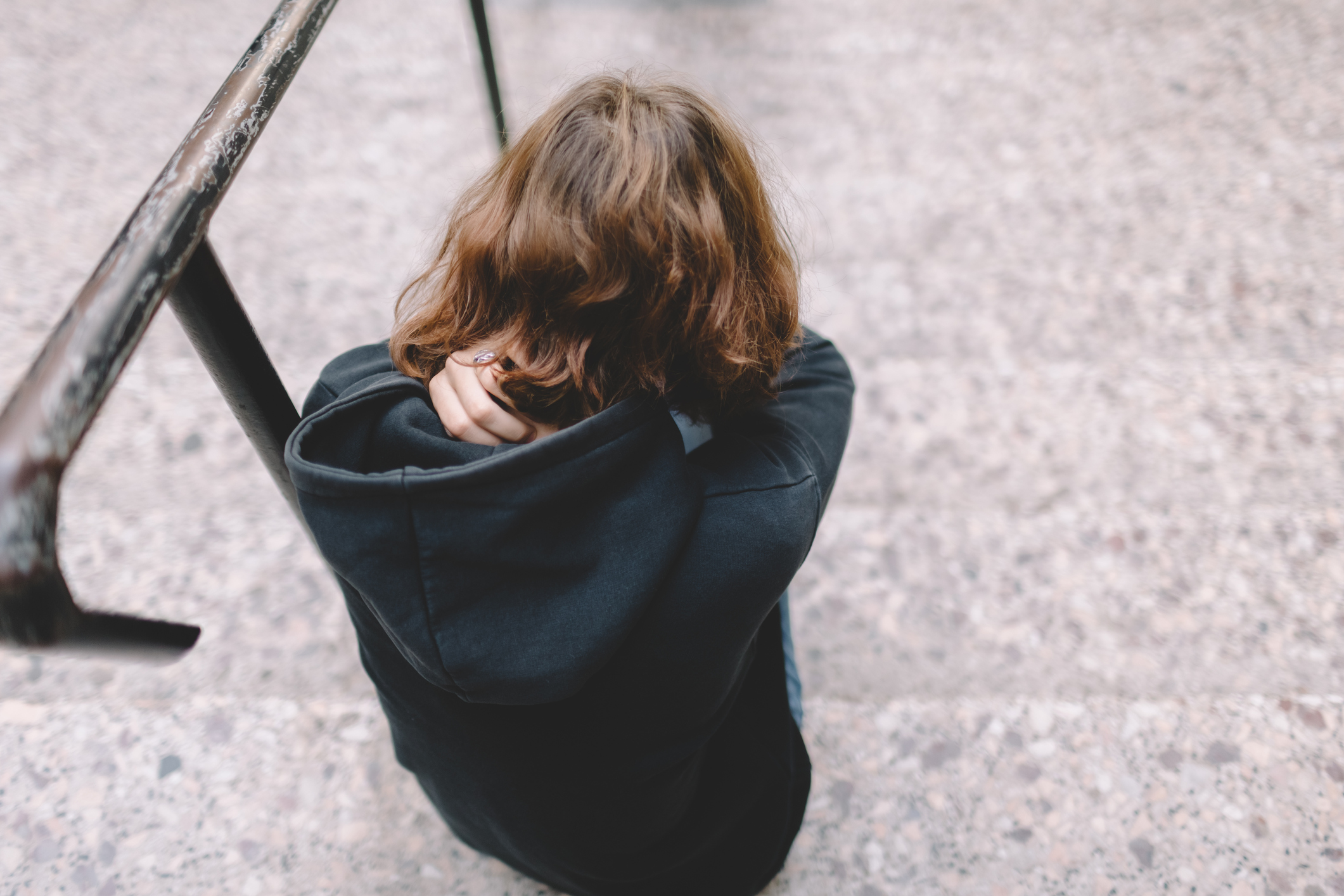
On May 24, 2004, 10 days after her 18th birthday, Dayna Fure was shot and killed by her ex-boyfriend, who then killed himself. After the breakup, Fure had obtained a protection order because her ex was stalking her and had threatened suicide. When Fure’s parents won a settlement against Snohomish County that acknowledged local law enforcement had downplayed the risk to their daughter’s life, they donated part of the settlement money to the Washington State Coalition Against Domestic Violence (WSCADV) to help educate teens and adults about dating violence.
The resulting training kit “In Their Shoes: Teens and Dating Violence” includes a composite character based on Fure. After teens or adults experience the story during a role-playing exercise, they read a letter from Fure’s mother explaining that this character is based on the experiences of her daughter. Suddenly, the distance between a training module and real life evaporates. Dating violence is now about someone they feel as though they know. The fact that one in three adolescents will experience verbal, emotional, physical or sexual abuse from a dating partner is no longer an abstract statistic.
It’s so easy to think the one in three won’t be our kid. Yet another statistic tells us to forget preconceived notions about who is, or will be, at risk for relationship abuse and violence: A 2009 survey found that although 82 percent of parents felt confident that they could recognize the signs if their child was experiencing dating abuse, 58 percent of parents couldn’t correctly identify all the warning signs of abuse. Being a parent means helping our kids learn to navigate dating, breakup, rejection, disappointment and loneliness in ways that are not destructive to themselves or others. Experts suggest every parent of a tween and teen learn what conversations to have, what signs to look for and what steps to take— even before your kid is dating.
Start talking
You might be concerned that you don’t have the expertise to talk with your kids about these issues in a way that will teach them what they need to know, but experts say any parent can and should confidently have these conversations.
“Parents’ main focus should be staying connected and talking about relationships with their kids,” says Ilene Stohl, a dating and teen violence expert and the prevention coordinator at WSCADV. “Teens tell us they want adults who listen to them. They want adults to have some understanding of what healthy relationships are and what unhealthy relationships look like. And they want us to know who the experts are in case they need help.”
Be intentional by using conversation cards titled “How’s Your Relationship? Chat about love with those you love.” Created by WSCADV, these tips are organized by age group, with an emphasis on kids and teens. While these cards focus on building healthy relationship skills, there’s also a set called “How’s Your Relationship? Conversations with someone about their abusive behavior.” With these, people can learn both how to stop abusive behavior and how to change their own unhealthy behaviors. For middle schoolers, WSCADV offers “Love Like This,” cartoons featuring cats in relationships that guide tweens through situations from asking someone out to breaking up.
It’s really about having a conversation that is two-sided, says Kelly Starr, managing director at WSCADV.
“We made these cards because we realized, as parents ourselves, we also needed a way into these conversations. Ask a question from the card, and then it’s about being quiet and listening,” she says. “Nobody likes or learns from being preached at. We like to say, ‘Ask a question, listen up and stay connected.’” While the time to start talking about dating relationships and teen dating violence is long before someone starts dating, it’s not too late to start talking if your teen is already dating, she adds.
Sexuality educator Amy Johnson recommends 100 Conversations, a campaign by the King County Sexual Resource Center that grew from the center’s work with young people around digital safety and sexual assault prevention. Print out the questions, pop them in a bowl or put them in the car and pull questions out at meals or during commutes.
Media can be a springboard into powerful conversations. If a film or show contains content around partner abuse, dating violence or sexual assault, parents can comment and help kids think critically about the issues, says Jo Langford, a Seattle-based therapist, sex educator and author of Spare Me ‘The Talk’! A Guy’s Guide to Sex, Relationships and Growing Up. He notes that the television shows Buffy the Vampire Slayer and Veronica Mars have powerful episodes dealing with consent and dating abuse. (At my house, we regularly critique The Gilmore Girls.)
Modeling is critical
If any of these tactics lead to responses of silence and/or eye rolls, that’s OK, too.
“Of course they don’t want to talk to you! Their job is to separate from you,” Stohl says. She recommends making sure other adults whom our kids might want to talk to have the information they need to help. Make agreements with the parents of your kid’s friends about what the expectations are for conversations like this, too. All of your parent friends will gain knowledge if you host a “parents’ night” to experience the adult version of “In Their Shoes: Teens and Dating Violence.” There’s also a classroom edition designed for teachers and teens.
Speaking of adults, we know that parents are the first and most powerful role models for what healthy dating, romantic and partner relationships look like, says Langford. “Paying attention to our own relationships is crucial. Do we display affection? Do we belittle? Do we put up with belittling? Do we excuse bad behavior?” He believes it’s OK to have conflicts in a non-abusive way in front of our kids, and that we should model how to graciously apologize.
Adults also need to model a healthy balance of power within the parent/child relationship. We teach our kids consent in situations that have nothing to do with relationship violence, says Johnson, who is also a faculty member at Great Conversations. “When they ask us to stop tickling them, we stop. When our son says, ‘I hate Grandma,’ we don’t say, ‘You don’t hate Grandma.’ Instead we say, ‘Tell me more,’” Johnson says. This helps kids learn to voice their feelings and desires.
If parents are having trouble in their own relationships, they should model how to ask for and receive help from professionals. “Children growing up in abusive homes are twice as likely to become a perpetrator or a victim,” says Kelsey Fisher, a youth advocate at the YWCA Pierce County’s outreach youth/teen program. “Breaking that cycle of violence ourselves is important. It’s also equally important that children who have witnessed abuse get professional help themselves to deal with their feelings about what happened and to learn how to break that cycle, too.”
When relationships turn violent
Life starts to feel narrower within an unhealthy relationship ... They’re worried if they don’t respond to messages on their phone quickly, the phone is going to blow up.
As they begin to date, we want teens to understand that their life will feel big and expansive within a healthy, good relationship, says Stohl. “Life starts to feel narrower within an unhealthy relationship. They lose interest in things they used to like, and stop hanging out with friends and family because their girlfriend or boyfriend doesn’t like them. They’re worried if they don’t respond to messages on their phone quickly, the phone is going to blow up.”
Stohl says if parents are concerned about their teen’s relationship, the most important thing is to stay connected, be curious, ask questions and listen. “Don’t lean in too much to the nervousness, but lean in to the curiosity of being connected to our kids. Ask them how their relationship is, and make talking about their relationship a normal part of everyday conversation,” she says.
If you think your teen is experiencing emotional, verbal, physical or sexual abuse, check out Love Is Respect to gather information; adults and teens can also chat online, text or call someone 24 hours a day.
Experts say that if abuse is occurring, a teen and his or her entire family will need help during a breakup.
“The most dangerous time for an abused person is when they break up with the person who is abusing them,” says Jennine Devenuti, education and prevention manager at YWCA Pierce County. An expert can help make a safety plan and support the whole family during a breakup.
Even if a relationship isn’t violent but is ending, our kids need our navigational support.
“Ask them how would they want to be broken up with: the slow fadeaway or a sit-down conversation? What about self-care afterward?” asks Johnson. “The underlying truth is, you want to have a family where it’s OK to talk about hard things, that your kids know you’ll listen. If they don’t want to talk to you, it’s OK to hand them resources and websites to check out themselves.”











